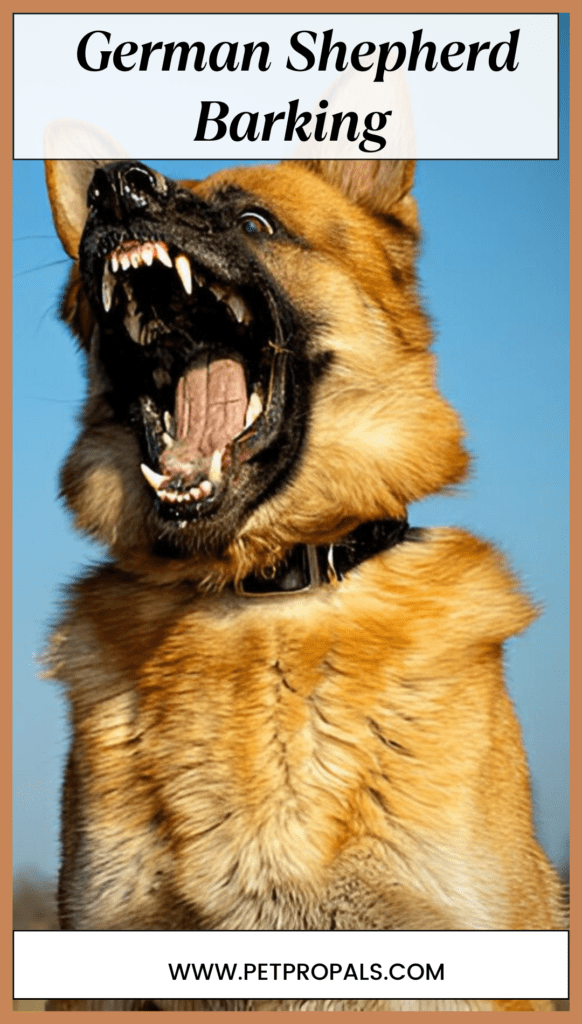Are You Considering Owning a German Shepherd for Your home and family?
When you Open this article I consider you already Own a German Shepherd or a Potential German Shepherd Owner.
It’s a Good Move to choose this One!
German shepherds are popular and renowned for their intelligence, loyalty, protection, and versatility, and they are popular worldwide among dog lovers.
You Can Imagine the Popularity of GSD from these statistics, There are over 3.5 million German Shepherd dogs in the USA alone!
Not only USA but Also all over the world People Choose this Dog Breed as a Pet because 100 years of experience, this dog is very hard-working and Protective Like a Guardian.
If you want a German Shepherd as a family pet, it’s important to know all about this breed. You should learn about their origins and history, temperament and behavior, health and lifespan, grooming and shedding, training, and socialization, nutrition and feeding, exercise and activity needs, what it’s like to live with them, cost and purchasing, and unique traits and fun facts.
The Good Thing is This guide will explore everything prospective and current owners need to know about this remarkable breed that we mentioned above.
Read: Is a German Shepherd Rottweiler Mix Right for You? Read This First!
Origins and History Of German Shepherd
The German Shepherd was developed by Captain Max von Stephanitz in Germany. He wanted to create the perfect herding dog.
In 1899, he found a dog named Hektor that matched his vision and renamed him Horand von Grafrath. Horand became the first registered German Shepherd and the foundation of the breed.
Originally, German Shepherds were used as herding dogs to help farmers manage their sheep. Over time, their intelligence, strength, and trainability made them ideal for many other roles.
They evolved into versatile working dogs, excelling in jobs like police work, search and rescue, and service dog duties. Today, they are known for their loyalty, bravery, and ability to perform a wide range of tasks.
Alternate name: The breed was called Alsatian in Britain from 1919 to 1977 due to anti-German sentiment after World War I.
Other influences: While Hektor (later Horand) was a key player, some credit goes to the variety of traditional German herding dogs used in the breed’s development.
Pop culture impact: Famous German Shepherds like Rin Tin Tin and Strongheart helped popularize the breed in the early 20th century. Their roles in movies and TV shows showcased the breed’s intelligence and versatility, making them beloved by many.
Physical Traits
German Shepherds are known for their strong and athletic build. They are medium to large-sized dogs, typically weighing between 75-95 pounds and standing 22 to 26 inches tall at the shoulder.
Coat and Colors: German Shepherds have a double coat that can be either short or long. Their coat comes in various colours, including:
- Sable (ranging from light fawn to dark mahogany with black tips)
- Black and Tan
- Black and Silver
Growth: German Shepherds usually stop growing around 18 to 24 months of age.
Ears: German Shepherd puppies’ ears typically stand up between 4 to 7 months old. This can vary slightly from puppy to puppy.
These physical traits contribute to their versatility and capability in various roles, from working dogs to beloved family pets.
Temperament and Behavior

German Shepherds are known for their loyal, intelligent, and protective nature.
They form strong bonds with their owners and are highly devoted to their families.
Here are some common behavior queries about German Shepherds:
Temperament:
- Loyal: German Shepherds are fiercely loyal to their families and will protect them at all costs.
- Intelligent: They are highly intelligent dogs, which makes them easy to train and capable of learning a wide range of commands and tasks.
- Protective: German Shepherds have a natural protective instinct, making them excellent guard dogs.
Common Behavior:
Are German Shepherds good with kids?
Yes, with proper socialization and supervision around young children, German Shepherds can be wonderful companions for kids.
Early socialization is crucial to ensure they are comfortable and well-behaved around children.
Do German Shepherds bark a lot?
German Shepherds can be vocal and alert, so they may bark to alert their owners of potential threats or to communicate their needs.
However, barking can be managed with proper training.
Why do German Shepherds whine?
German Shepherds may whine for various reasons, including seeking attention, expressing anxiety, or communicating discomfort or excitement.
Why does my German Shepherd follow me everywhere?
German Shepherds have a strong bond with their owners and enjoy being close to them.
They may follow you everywhere because they feel secure and happy when near you.
Health and Lifespan
Responsible dog owners understand that all breeds, including German Shepherds, are prone to certain health issues.
By discussing these common conditions, we can help you become a well-informed owner who can potentially prevent or detect them early.
Here’s a look at some of the most frequent health concerns in German Shepherds:
Common Health Issues:
- Hip Dysplasia: A condition where the hip joint doesn’t develop properly, leading to arthritis and mobility issues.
- Elbow Dysplasia: Similar to hip dysplasia but affecting the elbows, causing lameness and pain.
- Degenerative Myelopathy: A progressive disease of the spinal cord that leads to hind limb weakness and paralysis.
- Bloat (Gastric Dilatation-Volvulus): A life-threatening condition where the stomach twists and distends with gas, requiring immediate veterinary attention.
Lifespan: German Shepherds typically live between 9 to 13 years. However, several factors can affect their longevity, including genetics, diet, exercise, and overall care.
Factors Affecting Longevity:
- Genetics: Responsible breeding practices can help reduce the risk of inherited health problems.
- Diet: Providing a balanced and nutritious diet can contribute to a longer and healthier life.
- Exercise: Regular exercise helps maintain their physical and mental well-being.
- Veterinary Care: Routine check-ups and prompt treatment of any health issues can prolong their lifespan. Early detection and management of health issues like hip dysplasia can significantly improve a German Shepherd’s quality of life.
Causes of Death: German Shepherds usually die from age-related illnesses or genetic conditions.
These may include complications related to hip dysplasia, degenerative myelopathy, or other genetic disorders commonly seen in the breed.
Understanding these health considerations is important for ensuring the well-being and long life of German Shepherds as cherished family members.
Regular veterinary check-ups and proactive care can help detect and address health issues early, improving the likelihood of a longer and healthier life for these beloved companions.
Grooming and Shedding
Grooming and shedding are important for keeping your German Shepherd healthy and your home clean.
Regular grooming prevents matting, removes loose fur, and helps check for any skin issues.
Managing shedding reduces excess fur around the house and keeps your dog comfortable. It’s essential for the well-being of your German Shepherd and a tidy living environment.
Shedding Process:
Do German Shepherds shed?
Yes, they shed year-round, with heavier shedding occurring twice a year, typically in the spring and fall.
How much do German Shepherds shed?
German Shepherds shed significantly and require regular grooming to manage their shedding.
Can you shave a German Shepherd?
It’s not recommended to shave a German Shepherd as it can affect their coat’s texture and hinder their ability to regulate body temperature.
How often should you bathe a German Shepherd?
German Shepherds should be bathed every 3 to 4 months, or as needed, to keep their coats clean and healthy.
Early Socialization and Training

Early socialization and training are crucial for German Shepherds to become confident and well-behaved companions.
Socialization exposes them to different people, animals, and places, reducing fear and aggression.
Training teaches them commands, improves obedience, and strengthens the bond between you and your dog.
Training Tips:
- Start training early and be consistent.
- Use treats and praise to reinforce good behavior.
- Practice basic commands like sit, stay, come, and heel.
- Keep them mentally stimulated with interactive toys and puzzles.
- Consider obedience classes or professional trainers for advanced training.
Police and Service Work:
German Shepherds are ideal for police and service work due to their intelligence, trainability, and strong work ethic.
Training focuses on obedience, agility, and scent work.
Police dogs learn advanced commands like tracking, searching, and apprehension under professional guidance.
Their keen sense of smell, agility, and loyalty make them invaluable in these demanding roles.
With early socialization and training priority, you can ensure your German Shepherd becomes a well-behaved and reliable companion.
Their eagerness to learn and natural abilities make them well-suited for various roles, from service work to police K9 units.
Nutrition and Feeding
Proper nutrition and feeding are essential for the health and well-being of your German Shepherd.
What your dog eats directly impacts their overall health, energy levels, and longevity.
A balanced diet provides the necessary nutrients for maintaining strong muscles, bones, and a healthy immune system.
For puppies, nutrition is especially critical as it supports their growth and development into healthy adults.
Monitoring your dog’s weight through proper feeding helps prevent obesity and related health issues, ensuring they stay at an optimal weight.
A good diet also contributes to a shiny coat and healthy skin, reducing the risk of skin problems.
High-quality food supports good digestion, promoting a healthy gastrointestinal system.
What your German Shepherd eats is very important for their health. Here’s what you need to know about their food:
Dietary Needs:
How much should a German Shepherd eat a day?
It depends on how old, big, and active they are. Usually, an adult German Shepherd needs about 2 to 3 cups of good dog food per day, split into two meals.
How much to feed a German Shepherd puppy?
Puppies need to eat smaller meals more often. They should be fed 3 to 4 times a day until they’re about 6 months old, then 2 to 3 times a day.
Recommendation: Choose good quality dog food made for big, active dogs like German Shepherds.
Look for food with lots of good proteins, vitamins, and minerals, and without any bad stuff added in.
Talk to your vet to find the best food for your German Shepherd.
Exercise and Activity
Regular exercise and activity are essential for the health and well-being of your German Shepherd.
Exercise maintains their physical health, keeping muscles strong and weight in check.
It also provides vital mental stimulation, preventing boredom and behavioral issues.
Engaging in activities allows your dog to release excess energy constructively, reducing the likelihood of destructive behaviors.
Exercising together strengthens the bond between you and your dog, fostering a positive relationship.
German Shepherds are known for their high energy levels and need for regular exercise.
Here’s what you need to know:
Exercise Needs:
How much exercise do German Shepherds need?
German Shepherds require at least 1-2 hours of exercise every day to stay healthy and happy.
This should include both physical activity and mental stimulation.
How fast is a German Shepherd?
German Shepherds are fast runners and can reach speeds of up to 30 miles per hour.
They have strong, athletic bodies that enable them to cover ground quickly.
Activities:
To keep your German Shepherd mentally and physically stimulated, consider the following activities:
Daily Walks: Regular walks are essential for exercise and mental stimulation. Aim for at least 30-60 minutes of brisk walking each day.
Running and Jogging: German Shepherds enjoy running alongside their owners. Running or jogging together is a great way to provide vigorous exercise for your dog.
Hiking: Take your German Shepherd on hikes to explore new sights and smells while getting a good workout.
Playtime: Engage in interactive games such as fetch, tug-of-war, or agility training to keep them physically active and mentally engaged.
Training Sessions: Incorporate obedience training, trick training, or scent work to challenge their mind and reinforce their training.
Living with a German Shepherd

Living with a German Shepherd is Important to understanding their suitability for different living environments and the importance of creating a stimulating home.
Ensuring sufficient exercise and mental enrichment is vital for their well-being.
German Shepherds adapt well to various settings but require access to outdoor space for exercise.
Regular exercise, playtime, and mental enrichment activities are crucial to prevent boredom and ensure a fulfilled life.
With proper introduction and training, German Shepherds can get along with cats and other dogs, emphasizing the importance of early socialization.
Here’s what you need to know:
Suitability for Different Living Environments
German Shepherds can adapt to various living environments, including apartments, suburban homes, or rural settings, as long as they receive sufficient exercise and mental stimulation.
They thrive in homes with access to a secure outdoor space where they can run and play.
Creating a Stimulating Home
To ensure your German Shepherd’s well-being, create a stimulating home environment by providing plenty of opportunities for physical exercise and mental enrichment.
Regular walks, playtime, and training sessions are essential to keep them engaged and fulfilled.
Interactive toys, puzzle feeders, and agility equipment can also provide mental stimulation and prevent boredom.
Interactions with Other Pets
German Shepherds can coexist with other pets, including cats and other dogs, with proper introduction and training.
Do German Shepherds get along with cats?
Yes, German Shepherds can get along with cats if introduced and trained properly.
Slow and supervised introductions are essential to ensure a positive relationship between them.
Are German Shepherds good with other dogs?
Yes, German Shepherds can be good with other dogs if they are properly socialized from a young age.
Early socialization helps them learn to interact positively with other dogs and reduces the likelihood of conflicts.
Cost and Purchasing
When considering the cost of owning a German Shepherd, it’s important to take into account various factors.
Here’s a guide to the costs associated with purchasing and caring for a German Shepherd:
Cost of Purchasing:
How much does a German Shepherd puppy cost?
Typically, the cost of a German Shepherd puppy ranges between $500 and $3,000, depending on factors such as lineage, breeder reputation, and location.
How much is a purebred German Shepherd?
The cost of a purebred German Shepherd can be higher, especially if the dog comes from a show-quality lineage or has champion bloodlines.
Additional Costs: The initial purchase price, there are other costs to consider:
- Health Care: Routine veterinary visits, vaccinations, and preventive medications can add to the cost of owning a German Shepherd.
- Emergency veterinary care and unexpected health issues should also be budgeted for.
- Training: Professional training or obedience classes may be necessary to ensure your German Shepherd is well-behaved and obedient. This can incur additional costs.
- Maintenance: Regular grooming, high-quality food, toys, bedding, and other supplies are ongoing expenses that contribute to the overall cost of owning a German Shepherd.
Understanding the full scope of costs associated with purchasing and caring for a German Shepherd is important for planning and budgeting effectively.
While the initial purchase price is significant, it’s essential to also consider the ongoing expenses involved in providing proper care and maintenance for your beloved pet.
Unique Traits and Fun Facts
German Shepherds possess a range of unique traits that set them apart. Here’s what you need to know:
Unique Traits:
What is the bite force of a German Shepherd?
The bite force of a German Shepherd is around 238 pounds per square inch (psi), making them formidable in strength and power.
Do German Shepherds have webbed feet?
No, German Shepherds do not have webbed feet. Their feet are designed for agility and stability, but they lack the webbing found in some other breeds.
Why are German Shepherds so smart?
German Shepherds are renowned for their intelligence, which is a result of selective breeding for working ability and intelligence. They were bred to be highly trainable and versatile, making them excellent working dogs in various fields.
Fun Facts:
- German Shepherds are one of the most popular and recognizable dog breeds globally, known for their versatility, loyalty, and intelligence.
- They were originally bred in Germany by Captain Max von Stephanitz in the late 19th century for herding and protecting sheep.
- German Shepherds have served in various roles, including police and military work, search and rescue, therapy and service dogs, and as loyal family companions.
- Famous German Shepherds like Rin Tin Tin and Strongheart have left a lasting legacy, showcasing the breed’s intelligence and versatility in the early 20th century.
Conclusion
German Shepherds are amazing dogs known for their smarts, loyalty, and versatility. They’re best suited for dedicated and active owners who are ready to give them lots of care and attention.
With their high energy levels, they need plenty of exercise and mental stimulation to be happy. Before getting a German Shepherd, think about your lifestyle and if you’re ready for the responsibility.
Understanding what it takes to care for a German Shepherd will help make sure you and your new furry friend have a great life together.

